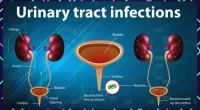Science has it that having a cup of coffee drink prevents diabetes. ‘How’ is what you will find out as you read on.
Coffee is one of the most widely consumed beverages globally, with millions of people relying on it to start their day. While some may view it as a mere morning pick-me-up, recent research has revealed that coffee consumption may have a profound impact on our health, particularly in preventing the onset of diabetes.
What Is Diabetes?
According to the National Institute of Diabetes and Digestive and Kidney Diseases (NIH), diabetes is a chronic condition characterized by the body’s inability to regulate blood sugar (glucose) levels effectively. There are two main types of diabetes:
- Type 1 Diabetes: This form of the disease is caused by the body’s immune system attacking and destroying the insulin-producing cells in the pancreas. As a result, the body is unable to produce insulin, a hormone essential for regulating blood sugar levels.
- Type 2 Diabetes: This is the most common form of diabetes, and it occurs when the body becomes resistant to the effects of insulin or is unable to produce enough insulin to maintain normal blood sugar levels.
Insulin is a hormone required by the body to convert sugar, starches, and other foods into energy for daily activities.
The cause of diabetes varies depending on your genetic makeup, family history, health, and environmental factors such as being overweight and lack of exercise, which seem to be contributing factors.
The Link Between Coffee Consumption and Diabetes Prevention
Studies have consistently shown that moderate coffee consumption is associated with a lower risk of developing type 2 diabetes. This correlation is attributed to the presence of caffeine, a key component of coffee that has been found to have several beneficial effects on glucose metabolism. Here are research findings that revealed the protective Eeffects of coffee against type 2 diabetes
Reduced Inflammation: Several studies have found that coffee consumption is associated with lower levels of inflammatory biomarkers like C-reactive protein (CRP) [1]. This anti-inflammatory effect of coffee is believed to be a key mechanism by which it reduces the risk of type 2 diabetes. Chronic inflammation is a major risk factor for insulin resistance and the development of diabetes.
Improved Insulin Sensitivity: Coffee has been shown to enhance insulin sensitivity and glucose tolerance, even in non-diabetic individuals. This is thought to be mediated by the effects of coffee components like caffeine, chlorogenic acids, and magnesium on glucose and lipid metabolism[2].
Enhanced Beta-Cell Function: Animal studies suggest that coffee consumption can help preserve pancreatic beta-cell function and prevent beta-cell dysfunction, which is central to the development of type 2 diabetes. This may be due to the antioxidant and anti-inflammatory properties of coffee [2].
Reduced Liver Fat: Coffee intake is associated with a lower risk of non-alcoholic fatty liver disease (NAFLD) , which is closely linked to insulin resistance and type 2 diabetes. The beneficial effects of coffee on liver health may contribute to its protective role against diabetes [3].
While caffeine has been shown to have acute negative effects on glucose and insulin levels, long-term coffee consumption appears to have a net positive impact on diabetes risk [4]. This suggests that other bioactive compounds in coffee, such as chlorogenic acids, diterpenes, and magnesium, may play a more important role in the protective effects against type 2 diabetes.
Studies have found that both caffeinated and decaffeinated coffee are associated with a lower risk of type 2 diabetes, indicating that the non-caffeine components of coffee are likely responsible for the observed benefits [4,5].
Many studies have reported a dose-dependent relationship between coffee consumption and diabetes risk, with greater consumption linked to lower risk [4,5]. Consuming 3-4 cups of coffee per day has been associated with the greatest reduction in diabetes incidence.
Therefore, the available evidence strongly suggests that regular, moderate coffee consumption can help prevent the development of type 2 diabetes through a variety of mechanisms, primarily involving the non-caffeine components of coffee. This protective effect appears to be dose-dependent, with higher intakes conferring greater benefits. Check out, Should You Drink Water Before Or After Coffee: The Debate Settled?
Bottomline
The available evidence strongly suggests that regular, moderate coffee consumption can help prevent the development of type 2 diabetes. This protective effect appears to be primarily driven by the non-caffeine components of coffee, such as chlorogenic acids, diterpenes, and magnesium, which have been shown to have anti-inflammatory, insulin-sensitizing, and beta-cell preserving effects.
The relationship between coffee intake and diabetes risk is dose-dependent, with 3-4 cups per day conferring the greatest reduction in incidence. Both caffeinated and decaffeinated coffee have been associated with lower diabetes risk, indicating that the non-caffeine compounds in coffee are likely responsible for the observed benefits.
References
- Medical News Today. (2023). How coffee helps lower type 2 diabetes risk: New clues on mechanism https://www.medicalnewstoday.com/articles/new-research-reveals-a-potential-mechanism-for-how-coffee-may-reduce-the-risk-of-type-2-diabetes
- National Center for Biotechnology Information (NCBI). (2021). Coffee and Lower Risk of Type 2 Diabetes: Arguments for a Causal Relationship. https://www.ncbi.nlm.nih.gov/pmc/articles/PMC8066601/
- Healthline. (2018). Coffee’s Effect on Diabetes. https://www.healthline.com/health/coffee-s-effect-diabetes
- Diabetes Care. (2014). Caffeinated and Decaffeinated Coffee Consumption and Risk of Type 2 Diabetes: A Systematic Review and a Dose-Response Meta-analysis https://www.diabetesjournals.org/care/article/37/2/569/29536/Caffeinated-and-Decaffeinated-Coffee-Consumption
- Harvard School of Public Health. (2019). Increasing Daily Coffee Intake May Reduce Type 2 Diabetes Risk. https://www.hsph.harvard.edu/news/press-releases/increasing-daily-coffee-intake-may-reduce-type-2-diabetes-risk/








